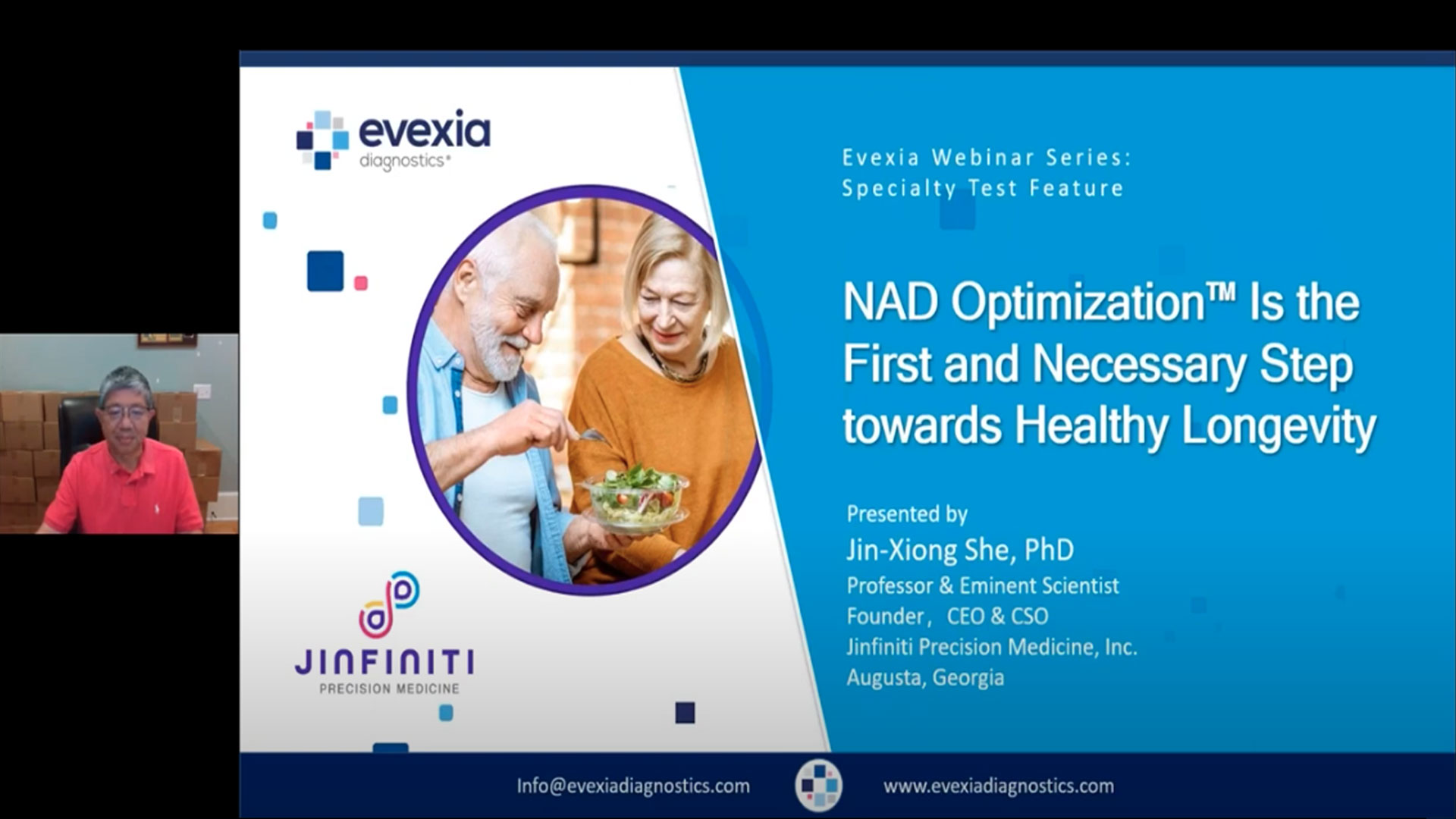NAD optimization is the first & necessary step for health and age management
November 3, 2022 | Wellness, NAD
Speaker: Professor Jin-Xiong She, PhD
Nicotinamide adenine dinucleotide (NAD) is a coenzyme found in all living cells. It is essential to life because it catalyzes reactions for more than 500 enzymes, including those involved in the production of cellular energy (ATP). NAD plays an essential role in six hallmarks of aging: DNA repair, epigenetic alteration, loss of proteostasis, mitochondrial dysfunction, cellular senescence and deregulated nutrient sensing. NAD declines with age and lower NAD levels are linked to loss of function and vitality, and many age-related diseases. Dr. She will present data from clinical studies that demonstrate that NAD optimization should be the first and necessary step to many age management therapies.
Since NAD deficiencies can have different causes, different people may require different management strategies to achieve optimum NAD levels. There are four major approaches including direct delivery of NAD+ by one of several delivery routes, supplementation with NAD precursors (NMN and NR) and other building blocks, induction of NAD synthesis enzymes, and inhibition of NAD-consuming enzymes. There have been numerous NAD products on the market; however, how well they work and what works in a given individual have been impossible to know till the recent development of at-home blood tests for consumers. In this presentation, Dr. She plans to discuss the roles of NAD in health and disease, the principle and performance of NAD tests on the market, how NAD tests can be used for personalized NAD optimization, and presentation of specific cases where NAD optimization provides crucial health benefits.
What will the audience learn from your presentation?
· What is NAD? · What are the roles of NAD in health and disease?
· How should we define the optimum range of NAD?
· What are the best ways to increase NAD levels for you?
· Why should all providers offer NAD tests and treatments to almost all their patients?
· What are the benefits to patients, providers, and society? Speaker: Professor Jin-Xiong She, PhD
